Parkinson's Disease
How to submit an article:
- Registered users can submit any published journal article that has a unique DOI (Digital Object Identifier) name or link to Research Hub.
- For example, you can paste the full DOI link:
https://doi.org/10.1109/5.771073or just the DOI name:10.1109/5.771073into the field above and click submit. - The person who is first to submit a valid article to Research Hub will forever be credited for it, and every article submission earns you +6 Research Points.
Parkinson's disease is a progressive neurological disorder characterised by tremors, stiffness, difficulty with movement, and impaired balance and coordination.
Related Topics
Published research studies are articles that present the findings of original research that has undergone a peer-review process and has been made publicly available in scholarly journals, books or other media.
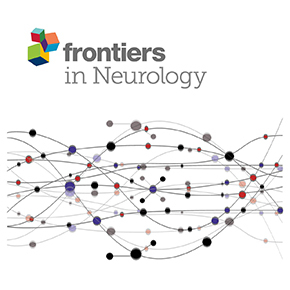
A study on the effects of the Qihuang Needle therapy on patients with Parkinson's disease
2023 Jan 27 Frontiers in Neurology Li X, Zhou J, He R, Lian J, Jia J, Hsu C, et al.
The QHN therapy consistently demonstrated superiority and produced clinically meaningful benefits in reducing motor and non-motor symptoms, as well as significantly improving muscle stiffness, in patients with PD.
Randomised Controlled Trial
Traditional Chinese medicine Pingchan granule for motor symptoms and functions in Parkinson's disease: A multicenter, randomized, double-blind, placebo-controlled study
2023 Jan Phytomedicine Gu SC, Shi R, Gaoag C, Yuan XL, Wu Y, Zhang Y, et al.
Pingchan granule (PCG) had a long-lasting efficacy for motor symptoms and function in Parkinson's disease (PD) with good tolerance, supporting that PCG might be a viable alternative in the management of PD.
Randomised Controlled Trial Ping Chan Granule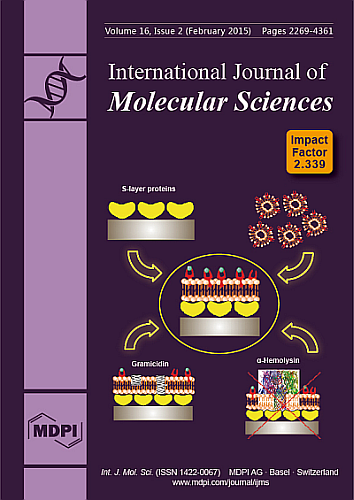
Magnesium and the Brain: A Focus on Neuroinflammation and Neurodegeneration
2022 Dec 23 International Journal of Molecular Sciences Maier JAM, Locatelli L, Fedele G, Cazzaniga A, Mazur A
Review Article Alzheimer's Disease Neurodegenerative Diseases Multiple Sclerosis Parkinson's Disease MagnesiumMagnesium, essential for harmonising nerve signals and preserving the blood-brain barrier, may be linked to neurodegenerative disorders when its balance is disrupted.

Green Tea Catechins Attenuate Neurodegenerative Diseases and Cognitive Deficits
2022 Nov 06 Molecules Afzal O, Dalhat MH, Altamimi ASA, Rasool R, Alzarea SI, Almalki WH, et al.
Review Article Green Tea Cognitive Function Multiple Sclerosis Parkinson's Disease Neuroprotective Alzheimer's Disease Neurodegenerative DiseasesGreen tea's catechins demonstrate therapeutic effects against neurodegenerative diseases via anti-inflammatory, antioxidant actions, and activating diverse brain cellular pathways.

Global Trend in the Research and Development of Acupuncture Treatment on Parkinson's Disease From 2000 to 2021: A Bibliometric Analysis
2022 Jul 08 Frontiers in Neurology Li X, Wei W, Wang Y, Wang Q, Liu Z
Systematic Review Parkinson's DiseaseAcupuncture, specifically electroacupuncture and bee venom acupuncture, shows promise as a growing therapeutic approach in the treatment of Parkinson's Disease.
Research insights are moderated by the Research Hub team and offer an at-a-glance overview of interesting research findings.

2022 International Journal of Molecular Sciences
Magnesium, essential for harmonising nerve signals and preserving the blood-brain barrier, may be linked to neurodegenerative disorders when its balance is disrupted.
Review Article Alzheimer's Disease Magnesium Multiple Sclerosis Neurodegenerative Diseases
Magnesium and the Brain: A Focus on Neuroinflammation and Neurodegeneration
Maier JAM, Locatelli L, Fedele G, Cazzaniga A, Mazur A

2022 Molecules
Green tea's catechins demonstrate therapeutic effects against neurodegenerative diseases via anti-inflammatory, antioxidant actions, and activating diverse brain cellular pathways.
Review Article Alzheimer's Disease Cognitive Function Green Tea Multiple Sclerosis Neurodegenerative Diseases
Green Tea Catechins Attenuate Neurodegenerative Diseases and Cognitive Deficits
Afzal O, Dalhat MH, Altamimi ASA, Rasool R, Alzarea SI, Almalki WH, et al.

2022 Frontiers in Neurology
Acupuncture, specifically electroacupuncture and bee venom acupuncture, shows promise as a growing therapeutic approach in the treatment of Parkinson's Disease.
Systematic Review
Global Trend in the Research and Development of Acupuncture Treatment on Parkinson's Disease From 2000 to 2021: A Bibliometric Analysis
Li X, Wei W, Wang Y, Wang Q, Liu Z
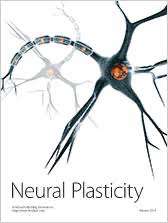
2021 Neural Plasticity
Acupuncture may slow Parkinson's disease progression by protecting dopaminergic neurons and regulating neurotransmitter balance, potentially reducing dependence on medication.
Review Article Dopamine Neurological Disorders
Acupuncture for Parkinson’s Disease: Efficacy Evaluation and Mechanisms in the Dopaminergic Neural Circuit
Zhao Y, Zhang Z, Qin S, Fan W, Li W, Liu J, et al.

2021 Foods
Fermented soybean products alleviate and possibly prevent neurodegenerative conditions, including Parkinson's and Alzheimer's diseases.
Review Article Alzheimer's Disease Neurodegenerative Diseases Soybean
Fermented Soy Products: Beneficial Potential in Neurodegenerative Diseases
Jang CH, Oh J, Lim JS, Kim HJ, Kim JS
Review Articles
Review articles summarise and critically evaluate the current state of research on a specific topic or field by synthesising multiple primary research studies.

Magnesium and the Brain: A Focus on Neuroinflammation and Neurodegeneration
2022 Dec 23 International Journal of Molecular Sciences Maier JAM, Locatelli L, Fedele G, Cazzaniga A, Mazur A
Review Article Alzheimer's Disease Neurodegenerative Diseases Multiple Sclerosis Parkinson's Disease MagnesiumMagnesium, essential for harmonising nerve signals and preserving the blood-brain barrier, may be linked to neurodegenerative disorders when its balance is disrupted.

Green Tea Catechins Attenuate Neurodegenerative Diseases and Cognitive Deficits
2022 Nov 06 Molecules Afzal O, Dalhat MH, Altamimi ASA, Rasool R, Alzarea SI, Almalki WH, et al.
Review Article Green Tea Cognitive Function Multiple Sclerosis Parkinson's Disease Neuroprotective Alzheimer's Disease Neurodegenerative DiseasesGreen tea's catechins demonstrate therapeutic effects against neurodegenerative diseases via anti-inflammatory, antioxidant actions, and activating diverse brain cellular pathways.

Global Trend in the Research and Development of Acupuncture Treatment on Parkinson's Disease From 2000 to 2021: A Bibliometric Analysis
2022 Jul 08 Frontiers in Neurology Li X, Wei W, Wang Y, Wang Q, Liu Z
Systematic Review Parkinson's DiseaseAcupuncture, specifically electroacupuncture and bee venom acupuncture, shows promise as a growing therapeutic approach in the treatment of Parkinson's Disease.

Acupuncture for Parkinson’s Disease: Efficacy Evaluation and Mechanisms in the Dopaminergic Neural Circuit
2021 Jun 15 Neural Plasticity Zhao Y, Zhang Z, Qin S, Fan W, Li W, Liu J, et al.
Review Article Parkinson's Disease Neurological Disorders DopamineAcupuncture may slow Parkinson's disease progression by protecting dopaminergic neurons and regulating neurotransmitter balance, potentially reducing dependence on medication.

Fermented Soy Products: Beneficial Potential in Neurodegenerative Diseases
2021 Mar 18 Foods Jang CH, Oh J, Lim JS, Kim HJ, Kim JS
Review Article Soybean Alzheimer's Disease Neurodegenerative Diseases Parkinson's DiseaseFermented soybean products alleviate and possibly prevent neurodegenerative conditions, including Parkinson's and Alzheimer's diseases.
Clinical Trials
Clinical trials are research studies that involve people and are conducted to evaluate the safety and efficacy of new treatments or interventions, such as drugs, medical devices, or behavioural therapies.

A study on the effects of the Qihuang Needle therapy on patients with Parkinson's disease
2023 Jan 27 Frontiers in Neurology Li X, Zhou J, He R, Lian J, Jia J, Hsu C, et al.
The QHN therapy consistently demonstrated superiority and produced clinically meaningful benefits in reducing motor and non-motor symptoms, as well as significantly improving muscle stiffness, in patients with PD.
Randomised Controlled Trial
Traditional Chinese medicine Pingchan granule for motor symptoms and functions in Parkinson's disease: A multicenter, randomized, double-blind, placebo-controlled study
2023 Jan Phytomedicine Gu SC, Shi R, Gaoag C, Yuan XL, Wu Y, Zhang Y, et al.
Pingchan granule (PCG) had a long-lasting efficacy for motor symptoms and function in Parkinson's disease (PD) with good tolerance, supporting that PCG might be a viable alternative in the management of PD.
Randomised Controlled Trial Ping Chan Granule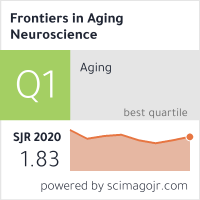
Acupuncture Modulates the Cerebello-Thalamo-Cortical Circuit and Cognitive Brain Regions in Patients of Parkinson's Disease With Tremor
2018 Jul 05 Frontiers in Aging Neuroscience Li Z, Chen J, Cheng J, Huang S, Hu Y, Wu Y, et al.
The cerebellum, thalamus and motor cortex, which are connected to the cerebello-thalamo-cortical (CTC) circuit, were modulated by the acupuncture stimulation to alleviate the PD tremor. The regulation of neural activity within the cognitive brain regions (the DMN, visual areas, insula and PFC) together with CTC circuit may contributes to enhancing movement and improving patients' daily life activities.
Randomised Controlled Trial Acupuncture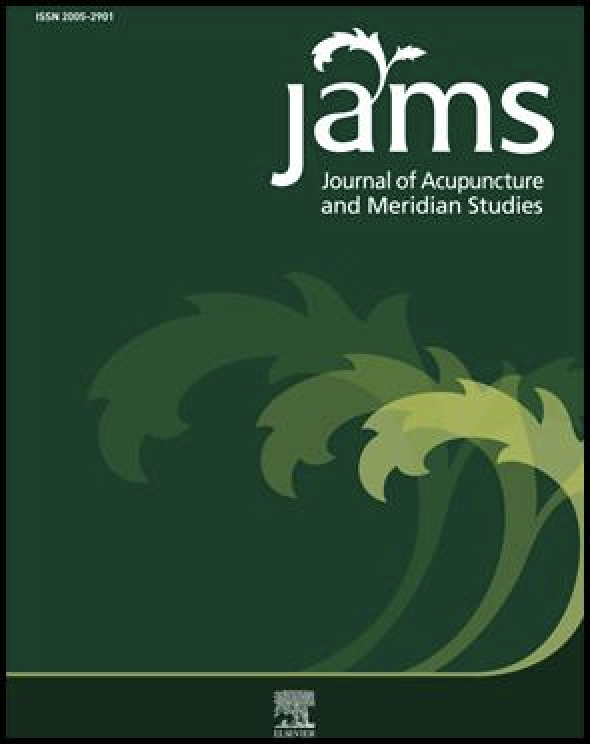
Acupuncture as Adjuvant Therapy for Sleep Disorders in Parkinson’s Disease
2017 Feb Journal of Acupuncture and Meridian Studies Aroxa FHA, Gondim ITGO, Santos ELW, Coriolano MGWS, Asano AGC, Asano NMJ
This study presented a potential therapeutic benefit of acupuncture on sleep disturbs of Parkinson's disease patients.
Randomised Controlled Trial Parkinson's Disease Insomnia Sleep DisorderStudy Protocols
Published study protocols are detailed plans that outline the objectives, methodology, statistical analyses, and organisation of a research study that have been made publicly available for others to review and use as a reference.
Presentation Slides

Review Article
Magnesium, essential for harmonising nerve signals and preserving the blood-brain barrier, may be linked to neurodegenerative disorders when its balance is disrupted.
Maier JAM, Locatelli L, Fedele G, Cazzaniga A, Mazur A

Review Article
Green tea's catechins demonstrate therapeutic effects against neurodegenerative diseases via anti-inflammatory, antioxidant actions, and activating diverse brain cellular pathways.
Afzal O, Dalhat MH, Altamimi ASA, Rasool R, Alzarea SI, Almalki WH, Murtaza BN, Iftikhar S, Nadeem S, Nadeem MS, Kazmi I

Systematic Review
Acupuncture, specifically electroacupuncture and bee venom acupuncture, shows promise as a growing therapeutic approach in the treatment of Parkinson's Disease.
Li X, Wei W, Wang Y, Wang Q, Liu Z

Review Article
Acupuncture may slow Parkinson's disease progression by protecting dopaminergic neurons and regulating neurotransmitter balance, potentially reducing dependence on medication.
Zhao Y, Zhang Z, Qin S, Fan W, Li W, Liu J, Wang S, Xu Z, Zhao M

Review Article
Fermented soybean products alleviate and possibly prevent neurodegenerative conditions, including Parkinson's and Alzheimer's diseases.
Jang CH, Oh J, Lim JS, Kim HJ, Kim JS

Review Article
Acupuncture may be a clinically effective and safe treatment for Parkinson's disease.
Huang J, Qin X, Cai X and Huang Y

Review Article
Regular coffee consumption, due to its bioactive compounds, may have protective effects against chronic disorders and certain neurodegenerative conditions.
Socała K, Szopa A, Serefko A, Poleszak E, Wlaź P

Cohort Study
Depressed patients who received acupuncture treatment showed a significantly lower risk of developing Parkinson's disease.
Huang CH, Lin MC, Hsieh CL

Review Article
Green tea polyphenols can potentially protect against neurodegenerative disorders like Parkinson's Disease through antioxidant, anti-inflammatory, and neuroprotective actions.
Malar DS, Prasanth MI, Brimson JM, Sharika R, Sivamaruthi BS, Chaiyasut C, Tencomnao T

Systematic Review
These reports suggest the benefits of a walnut-enriched diet in brain disorders and in other chronic diseases, due to the additive or synergistic effects of walnut components for protection against oxidative stress and inflammation in these diseases.
Chauhan A, Chauhan V.
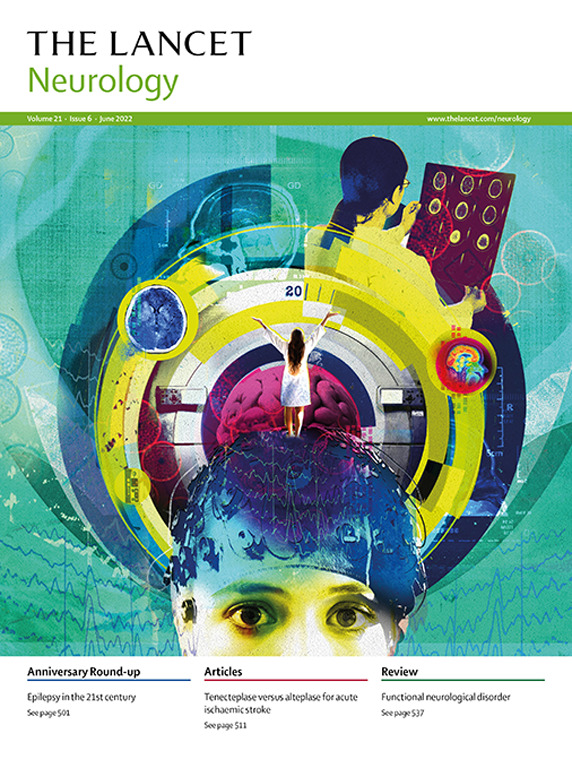
Review Article
Traditional Chinese Medicine provides a valuable, holistic approach to Parkinson's disease prevention and treatment, offering another angle besides Western medicinal practices.
SongLi, WeidongLe

Systematic Review
Chinese herbal medicine in conjunction with conventional western medicine proved effective in improving symptoms in Parkinson's disease patients.
Jin XC, Zhang L, Wang Y, Cai HB, Bao XJ, Jin YY, Zheng GQ
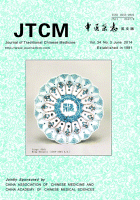
Review Article
Acupuncture, as an adjuvant therapy or monotherapy, can protect and restore dopaminergic neurons, bearing positive implications for the Parkinson's disease treatment.
Danqing X

Systematic Review
Traditional Chinese Medicine, when used alongside dopamine replacement therapy, could potentially improve the severity of symptoms in Parkinson's disease patients.
Guoxin Zhang, Nian Xiong, Zhentao Zhang, Ling Liu, Jinsha Huang, Jiaolong Yang, Jing Wu, Zhicheng Lin, Tao Wang

Review Article
Chinese herbal medicine as an adjunct therapy can potentially alleviate symptoms of Parkinson's Disease and is typically well-tolerated by patients.
Wang Y, Xie CL, Lu L, Fu DL, Zheng GQ
Executive Summary
Write an executive summary in the form of a blog article on the topic of "Research into Chinese medicine treatment for Parkinson's Disease" summarising the research below and using language that can be easily understood by patients and avoiding medical jargon using a professional and caring tone of voice.
Write an executive summary in the form of a blog article on the topic of "Researched Chinese medicine treatments for Parkinson's Disease" summarising the research below in an objective and easy to understand way, and using language that can be easily understood by patients. Group the article into Chinese medicine treatments first, followed by nutrition and other treatments. Avoid using medical jargon and use a professional and caring tone of voice.
Write me a concise but easy to understand executive summary on the topic of "Chinese medicine treatments for Parkinson's Disease" based on the following research that I will give you. Your summary should be 2 paragraphs long in Australian English spelling and include references to the studies.
A Review Article published in 2022 in the journal International Journal of Molecular Sciences found that Magnesium, essential for harmonising nerve signals and preserving the blood-brain barrier, may be linked to neurodegenerative disorders when its balance is disrupted. The researchers performed a narrative review, beginning with a quick overview of the role of magnesium in the brain. Magnesium is crucial for healthy nerve signal transmission and the upkeep of the blood-brain barrier, which protects the brain from harmful substances in the blood. Then, they discussed evidence suggesting a connection between disrupted magnesium balance and a variety of neurodegenerative disorders. In the discussion of the results, it was posited that a deficiency in magnesium might contribute to low-grade systemic inflammation, which is common in many illnesses. Specifically, they argued that such inflammation in the brain is a characteristic feature of neurodegenerative diseases. The review found evidence that disruptions in the body's magnesium balance could be associated with multiple sclerosis, Alzheimer's, and Parkinson's diseases.
A Review Article published in 2022 in the journal Molecules found that Green tea's catechins demonstrate therapeutic effects against neurodegenerative diseases via anti-inflammatory, antioxidant actions, and activating diverse brain cellular pathways. The research primarily evaluates the effect of polyphenolic compounds found in green tea, known as catechins, on neurodegenerative diseases. By conducting several interventional and observational studies on humans, the research explores the anti-cancer, anti-obesity, antidiabetic, anti-inflammatory, and neuroprotective properties of these compounds. The biological, pharmacological, antioxidant, and metal chelating abilities of catechins, particularly their influence on different cellular pathways within the brain, are intensively studied. The results elucidate that catechins exhibit multiple neuroprotective effects. Their anti-inflammatory and antioxidant properties help to inhibit excessive production of cytokines, and inflammatory pathways, while also controlling metal ions and free radicals. Researchers have further established that catechins may curb the phosphorylation of the tau protein and aggregation of amyloid beta, both key markers in neurodegenerative diseases. Additionally, these compounds show potential in reducing alpha-synuclein levels and augmenting dopamine levels. Hence, they significantly contribute to the prevention and treatment of neurodegenerative diseases, including Alzheimer's, Parkinson's, multiple sclerosis, and cognitive deficits.
A Systematic Review published in 2022 in the journal Frontiers in Neurology found that Acupuncture, specifically electroacupuncture and bee venom acupuncture, shows promise as a growing therapeutic approach in the treatment of Parkinson's Disease. To explore global trends in acupuncture research for Parkinson's Disease over recent decades, data was gathered from the Web of Science Core Collection database. The analysis period covered 2000 through 2021, with the use of CiteSpace and VOSviewer software to review key factors such as the number of publications, countries offering significant contributions, key institutions and researchers, and recurring research keywords. Five years of research indicated a general upward trend in publications dedicated to this subject. It was observed that China, South Korea, and the USA are the predominant contributors, with Kyung Hee University and Capital Medical University recognized as the most productive institutions. Hi-Joon Park has significantly contributed to the field of study, with an emphasis on "electroacupuncture" and "bee venom acupuncture" as emerging research focus points. An analysis of the gathered information revealed that acupuncture therapy for Parkinson's Disease has an upward trajectory in scientific interest and research. Within the body of global research, specific therapeutic approaches such as electroacupuncture and bee venom acupuncture have gained prominence. It became clear that collaboration and open communication across different nations and organizations could benefit the global development and application of these promising treatments. The non-motor symptoms of Parkinson's Disease, the development of models that accurately reflect these symptoms in humans, and the efficacy of potential therapies have taken center stage in the realm of acupuncture research.
A Review Article published in 2021 in the journal Neural Plasticity found that Acupuncture may slow Parkinson's disease progression by protecting dopaminergic neurons and regulating neurotransmitter balance, potentially reducing dependence on medication. The study summarizes various clinical trials that explore the impact of acupuncture on Parkinson's disease. It predominantly focuses on how acupuncture, when combined with anti-Parkinson's medication, helps in improving the symptoms of the disease. Furthermore, it delves into the protective role of acupuncture on dopaminergic neurons in the brain through various physiological pathways including antioxidative stress, anti-inflammatory, and anti-apoptotic mechanisms. The abstract also discusses how acupuncture could potentially modulate the neurotransmitter balance in the patient's basal ganglia circuit. The results inferred from the review of the current studies show possible benefits of acupuncture in managing Parkinson's disease. During the early stages of the disease in particular, acupuncture demonstrated potential in reducing the neurodegeneration of the dopamine-producing neurons in the brain. This could eventually regulate the balance of the dopaminergic circuit in the brains of these patients. This regulation and neuroprotective role suggest that acupuncture could potentially delay the progression of Parkinson's disease. These potential benefits could reduce the patient's dependence on medication for managing their symptoms.
A Review Article published in 2021 in the journal Foods found that Fermented soybean products alleviate and possibly prevent neurodegenerative conditions, including Parkinson's and Alzheimer's diseases. The study involved the fermentation of cooked soybeans with specified bacteria and fungi species, a process known to produce a range of bioactive compounds. These unique compounds, which are most often beneficial to health, are contained in fermented soybean products that are a staple in East Asian diets. In analyzing the results, the focus was on the potential of these fermented soy foods and their components in managing neurodegenerative diseases. Notably, the findings suggested a significant preventive and curative effect of these products on such ailments as Alzheimer's and Parkinson's diseases. The paper, therefore, presents fermented soy foods as potentially reliable natural solutions to these neurodegenerative conditions.
A Review Article published in 2020 in the journal Frontiers in Neurology found that Acupuncture may be a clinically effective and safe treatment for Parkinson's disease. In this study, a thorough search was done in eight different databases to find systematic reviews and meta-analyses that investigated the potential benefits of acupuncture for treating Parkinson's disease. The methodological quality of these collected reviews was assessed using the Assessing the Methodological Quality of Systematic Reviews 2 checklist, and the quality of the evidence provided by the reviews was evaluated with the Grading of Recommendations, Assessment, Development, and Evaluation criteria. Of the 11 reviews analysed, all were regarded as very low-quality studies on the Assessing the Methodological Quality of Systematic Reviews 2 checklist. However, despite the limited quality, these reviews provide a narrative analysis that suggests acupuncture may offer a safe and effective treatment for Parkinson's disease. The Grading of Recommendations, Assessment, Development, and Evaluation scale categorized the evidence quality as very low to moderate. Despite the overall low evidence and methodological quality, it is highlighted that acupuncture may still hold potential as a treatment option for Parkinson's disease. It's also noted that the results should be interpreted with caution due to the low quality of the studies included.
A Review Article published in 2020 in the journal International Journal of Molecular Sciences found that Regular coffee consumption, due to its bioactive compounds, may have protective effects against chronic disorders and certain neurodegenerative conditions. The paper evaluates the neuroprotective potential of the main bioactive elements in coffee: caffeine, chlorogenic acid, caffeic acid, trigonelline, kahweol, and cafestol. The analysis is focused on the coffee beverage as a complex mixture of these bioactive compounds. The comprehensive study includes in vitro and in vivo preclinical tests to determine the specific health benefits each of these compounds can offer. The results indicate that regular coffee intake may have defensive effects against a variety of enduring disorders; including cardiovascular disease, type 2 diabetes, obesity, and some forms of cancer. Additionally, an interesting correlation is found between coffee consumption and a lower risk of developing certain neurodegenerative conditions such as Alzheimer's disease, Parkinson's disease, and dementia. The study also highlights that regular coffee intake could possibly lower the risk of stroke. However, the study mentions that the mechanisms enabling these effects are yet to be fully understood.
A Cohort Study published in 2020 in the journal Frontiers in Aging Neuroscience found that Depressed patients who received acupuncture treatment showed a significantly lower risk of developing Parkinson's disease. The study was retrospective in nature and was based on data sourced from Taiwan's National Health Insurance Research Database. An equal number of patients (9,189), with and without acupuncture treatment, were selected from the total 48,981 patients newly diagnosed with depression between 2000 and 2012. These study participants were matched 1:1 using the propensity score method. The incidence of Parkinson's disease in these two groups was compared using the Kaplan-Meier method and the difference was examined with a log-rank test. The severity of depression and specific acupoints used were not indicated. The results indicated a significantly lower risk of developing Parkinson's disease in patients who had undergone acupuncture treatment. Differences in age, sex, insurance amount, geographic region, urbanization levels, comorbidities, and drugs were taken into account. The cumulative effect was such that the incidence was significantly lower in the acupuncture cohort as compared to the non-acupuncture cohort.
A Review Article published in 2020 in the journal Molecules found that Green tea polyphenols can potentially protect against neurodegenerative disorders like Parkinson's Disease through antioxidant, anti-inflammatory, and neuroprotective actions. The study synthesized existing research on the potential neuroprotective benefits of green tea polyphenols, particularly in Parkinson's disease. The papers highlighted were drawn from numerous sources and focused on the antioxidant, anti-inflammatory, and neuroprotective attributes of these compounds. Green tea's potential protection against free radicals, inflammation, and neuro-damage were considerable points of interest. The analysis also took into account the complex physiological, social, and cultural factors that could influence the effectiveness of green tea polyphenols in human subjects. Through the evaluation of numerous in vivo studies, researchers came to intriguing conclusions about the overall mechanism of green tea. The studies assessed explored how green tea consumption could mitigate neurodegenerative disorders like Parkinson's. In these analyses, investigators refined their understanding of how green tea and its polyphenols function from a neuroprotective standpoint. This information helps us better understand the advantages of green tea consumption and its potential role in preventing neurodegeneration.
A Systematic Review published in 2020 in the journal Nutrients found that These reports suggest the benefits of a walnut-enriched diet in brain disorders and in other chronic diseases, due to the additive or synergistic effects of walnut components for protection against oxidative stress and inflammation in these diseases. Walnuts contain several components that have antioxidant and anti-inflammatory effects. Animal and human studies from our and other groups suggest that supplementation with walnuts in the diet may improve cognition and reduce the risk and/or progression of mild cognitive impairment and Alzheimer's disease. Furthermore, several animal and human studies have suggested that walnuts may also decrease the risk or progression of other brain disorders such as Parkinson’s disease, stroke, and depression, as well as of cardiovascular disease and type 2 diabetes. Together, these reports suggest the benefits of a walnut-enriched diet in brain disorders and in other chronic diseases, due to the additive or synergistic effects of walnut components for protection against oxidative stress and inflammation in these diseases.
A Review Article published in 2019 in the journal The Lancet Neurology found that Traditional Chinese Medicine provides a valuable, holistic approach to Parkinson's disease prevention and treatment, offering another angle besides Western medicinal practices. The paper uses historical analysis to examine how Parkinson's disease-like symptoms were described and treated in ancient Chinese medical texts, with a focus on the theories of Yin-Yang imbalance and five-element theories, along with the use of various herbs, acupuncture and physical exercise. It draws from a range of historical periods, from as early as 425-221 BC up until the Ming dynasty (1368-1644 AD), discussing different traditional treatments like Zhenwu decoction, Gegen decoction, Jin Ya Wine, and Ding Zhen Pill. In discussing the results, the paper synthesizes these historical treatments with modern practices, pointing out that many traditional remedies, now updated with contemporary knowledge, continue to be used in China. These include the renamed Ding Zhen Decoction, dietary therapies, acupuncture, moxibustion, Tai Chi, and Qigong. It was found that these approaches could improve both motor and non-motor symptoms for patients with Parkinson's disease. Many of the ingredients in these treatments have bioactive molecules which have shown therapeutic benefits. In addition to treatment, the study also emphasizes the value of early disease prevention in line with TCM's approach, noting that certain behaviors typical of the tradition such as tea-drinking and physical exercises have been observed to offer a preventive effect for Parkinson's patients.
A Systematic Review published in 2019 in the journal Frontiers in Pharmacology found that Chinese herbal medicine in conjunction with conventional western medicine proved effective in improving symptoms in Parkinson's disease patients. The researchers carried out an extensive search of six databases up until September 2018 to gather relevant literature on the subject. The selection and extraction of data were in accordance with predetermined criteria. Two tools - A Measurement Tool to Assess Systematic Reviews (AMSTAR) and Grading of Recommendations Assessment, Development, and Evaluation (GRADE), were used to assess the methodological quality of the systematic reviews and the evidence quality of the primary outcomes respectively. The results of the study indicated that, in comparison with conventional western medicine alone, Chinese herbal Medicine (CHM) when used in conjunction with western medicine had a significant effect in improving the symptoms of Parkinson's disease patients. However, when used solely, CHM had no substantial impact. The adverse events were documented in nine out of eleven systematic reviews. In comparison with conventional western medicine, the CHM had generally fewer or milder side effects. But the researchers urged caution while considering the evidence due to certain flaws in the methodology.
A Review Article published in 2015 in the journal Journal of Traditional Chinese Medicine found that Acupuncture, as an adjuvant therapy or monotherapy, can protect and restore dopaminergic neurons, bearing positive implications for the Parkinson's disease treatment. Methodologically, animal studies were used to investigate the effects of acupuncture treatment on Parkinson's disease. An examination was conducted to see if the treatment was neuroprotective, if it could protect dopaminergic neurons from degeneration, and restorative, if it could restore tyrosine hydroxylase positive dopaminergic terminals in the striatum. These pathways were monitored at both molecular and cellular levels. The research also looked into whether the protection was mediated through the same mechanisms as other neuroprotective agents such as anti-oxidative stress, anti-inflammatory, and anti-apoptotic pathways. The results indicated that acupuncture was not only neuroprotective and restorative, but also seen to improve motor performance in animal models of Parkinsonism. The protective effect appeared to be mediated through common mechanisms of other neuroprotective agents, while restoration of function involved activation of certain compensatory brain regions to correct the imbalances stemming from the loss of dopaminergic neurons. Furthermore, clinical studies in China and Korea depicted a positive impact of acupuncture in treating Parkinson's disease, specifically by reducing the dosage of dopaminergic medications and the associated side effects.
A Systematic Review published in 2015 in the journal PLOS One found that Traditional Chinese Medicine, when used alongside dopamine replacement therapy, could potentially improve the severity of symptoms in Parkinson's disease patients. The study conducted a meta-analysis using electronic searches in PubMed, Cochrane Controlled Trials Register, China National Knowledge Infrastructure, Chinese Scientific Journals Database and Wanfang data to find randomized trials evaluating the effectiveness of using TCM as an additional treatment to conventional treatment for patients with Parkinson's disease. The Unified Parkinson's Disease Rating Scale score was used as a measure to determine the effectiveness of the therapies. The evaluation of the studies, which included 27 articles involving a total of 2314 patients from 1999-2013, showed marked improvements in the symptom score for patients undergoing combination treatment of TCM plus dopamine replacement therapy, particularly when compared to dopamine replacement therapy alone. More specifically, acupuncture as an add-on to traditional treatment showed substantial benefits for improving the symptom score of patients with Parkinson's disease. However, TCM as a standalone treatment did not improve the scores. The results also suggested that the effectiveness of using TCM as an adjunct therapy tends to be more noticeable in Parkinson's patients with longer durations of the added therapy. Overall, the use of TCM as an additional treatment was safe and well-tolerated by patients.
A Review Article published in 2012 in the journal Evidence-Based Complementary and Alternative Medicine found that Chinese herbal medicine as an adjunct therapy can potentially alleviate symptoms of Parkinson's Disease and is typically well-tolerated by patients. The research team carried out a comprehensive literature review spanning from 1950 to April 2011, identifying randomized trials focusing on Chinese herbal medicine as an add-on treatment in comparison with western conventional treatments for Parkinson's Disease. They scrutinized the change in scores from the Unified Parkinson's Disease Rating Scale and observed any side effects. Following the careful analysis of 19 trials that involved over 1300 participants, it was found that the addition of Chinese herbal medicine to standard treatments offered more significant improvements in Parkinson's Disease scores. Notably, adverse effects were reported less frequently and were also milder in the group that received the adjunctive Chinese herbal medicine treatment as compared to the group that underwent conventional treatment only.
Moderation Tools
Topic
Sign In
Users not signed in are limited to viewing the 5 most recent items of content.